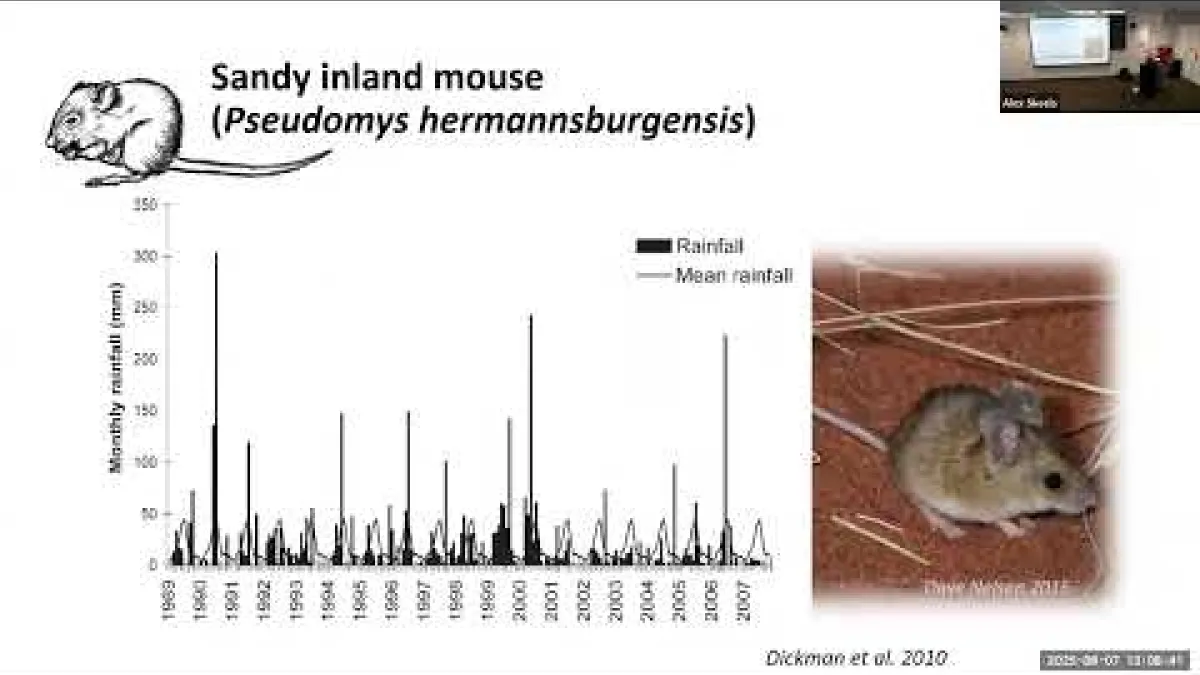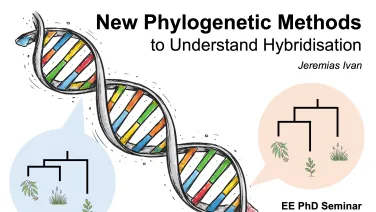E&E Seminar Series: Boom-bust population dynamics drive rapid genetic & Conserving species with an ecological niche perspective
This seminar is presented by Dr Emily Stringer and Dr Jarrod Sopniewski, Postdoctoral Research Fellows from the Centre for Conservation Ecology and Genomics at the University of Canberra.
Speakers
Event series
Content navigation
Description
Boom-bust population dynamics drive rapid genetic
ABSTRACT
Increasing environmental threats and more extreme environmental perturbations place species at risk of population declines, with associated loss of genetic diversity and evolutionary potential. Although theory shows that rapid population declines can cause loss of genetic diversity, populations in some environments, such as Australia’s arid zone, are repeatedly subject to major population fluctuations, yet persist and are able to maintain genetic diversity. Here, we use repeated population sampling over 15 years and genotype-by-sequencing of nearly 2000 individuals to investigate the genetic consequences of repeated environmental perturbations for two small mammals occupying Australia’s arid zone.
BIOGRAPHY

Emily is a Postdoctoral Research Fellow at the Centre for Conservation Ecology and Genomics at the University of Canberra and is primarily working on developing a population viability analysis for the critically endangered Canberra grassland earless dragon. She completed her PhD at the University of Canberra, where she explored the field of population genetics, drawing on an extensive tissue collection from two small desert mammals in the Simpson Desert that were part of a long-term ecological study. This dataset enabled the empirical investigation of theoretical genetic expectations within a natural system. Her research interests lie in understanding and interpreting complex ecological and genetic data to address both theoretical questions and applied challenges.
Conserving species with an ecological niche perspective
ABSTRACT
Earth is in an extinction crisis, with species facing endless threats, including habitat loss, invasive species, and climate change. As such, conserving species is an enormous challenge, and one that must be faced from multiple angles. One is through considering how threatening processes affect species in the context of their ecological niche: the subset of environmental conditions in which they have evolved and are to persist within. In this talk, I will discuss how we can view conservation challenges at broad scales by examining how threatening processes differentially affect species throughout their ecological niche, and how this information can help us better target conservation action.
BIOGRAPHY

Jarrod Sopniewski is a Postdoctoral Research Fellow at the Centre for Conservation Ecology and Genomics at the University of Canberra, where he is primarily working on a project to reintroduce the threatened Green and Golden Bell Frog to the ACT. He completed his PhD at the University of Western Australia, where he studied as a Hackett Scholar. His research to date has primarily been focused around using genomic and ecological modelling methods to tackle landscape-scale conservation problems, with a specific emphasis on exploring the challenges posed to frogs by the invasive pathogen chytrid fungus.
Location
Please note: this seminar will be held in the Eucalyptus Seminar Room and via Zoom, details are included below.
Eucalyptus Seminar Room, S205,
Level 2, RN Robertson Bldg (46)
Please click the link below to join the webinar:
https://anu.zoom.us/j/87446833385?pwd=iy26lOZoNenx07bps7BVySXmunopKn.1
Webinar ID: 874 4683 3385
Passcode: 663039
Canberra time: please check your local time & date if you are watching from elsewhere.


